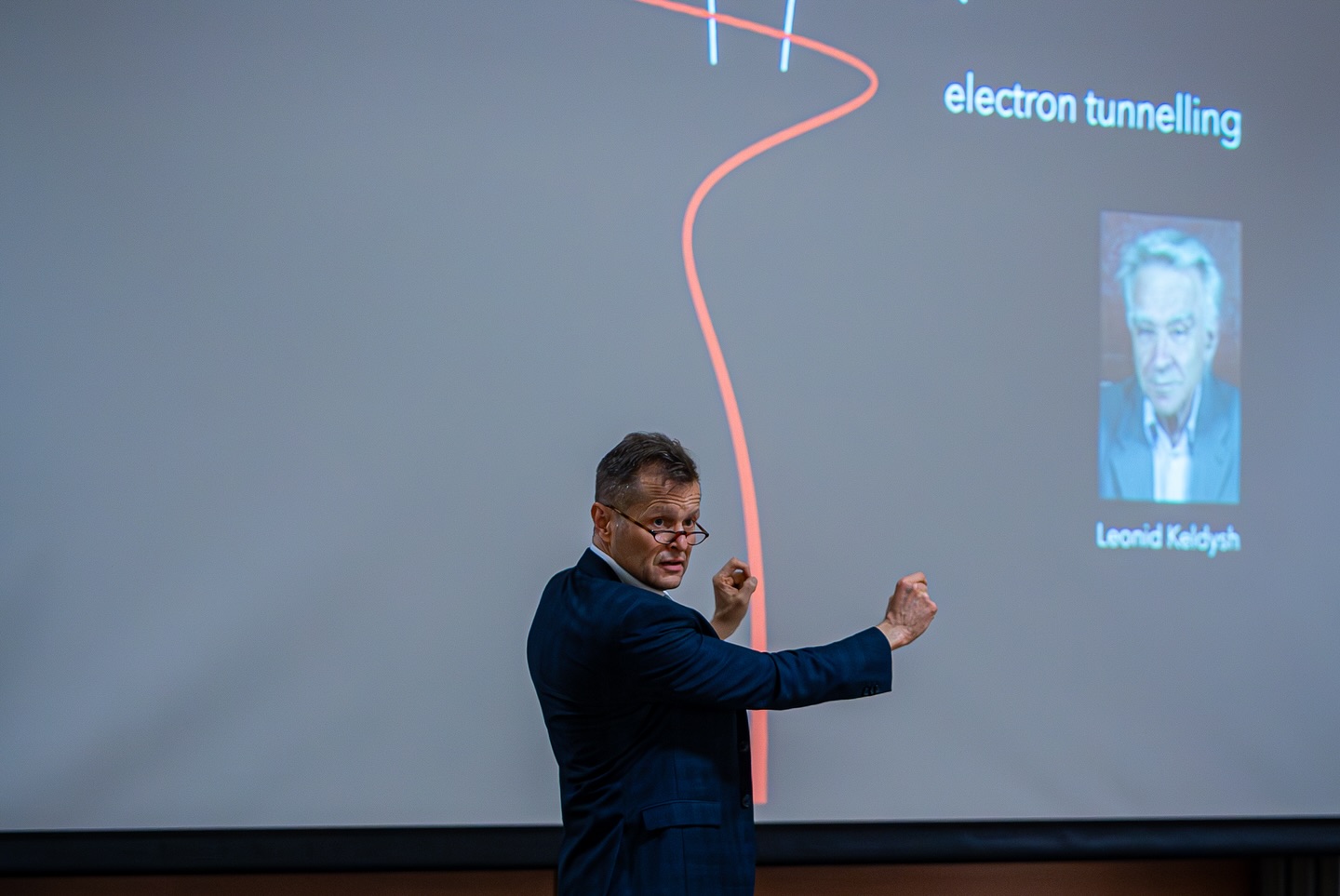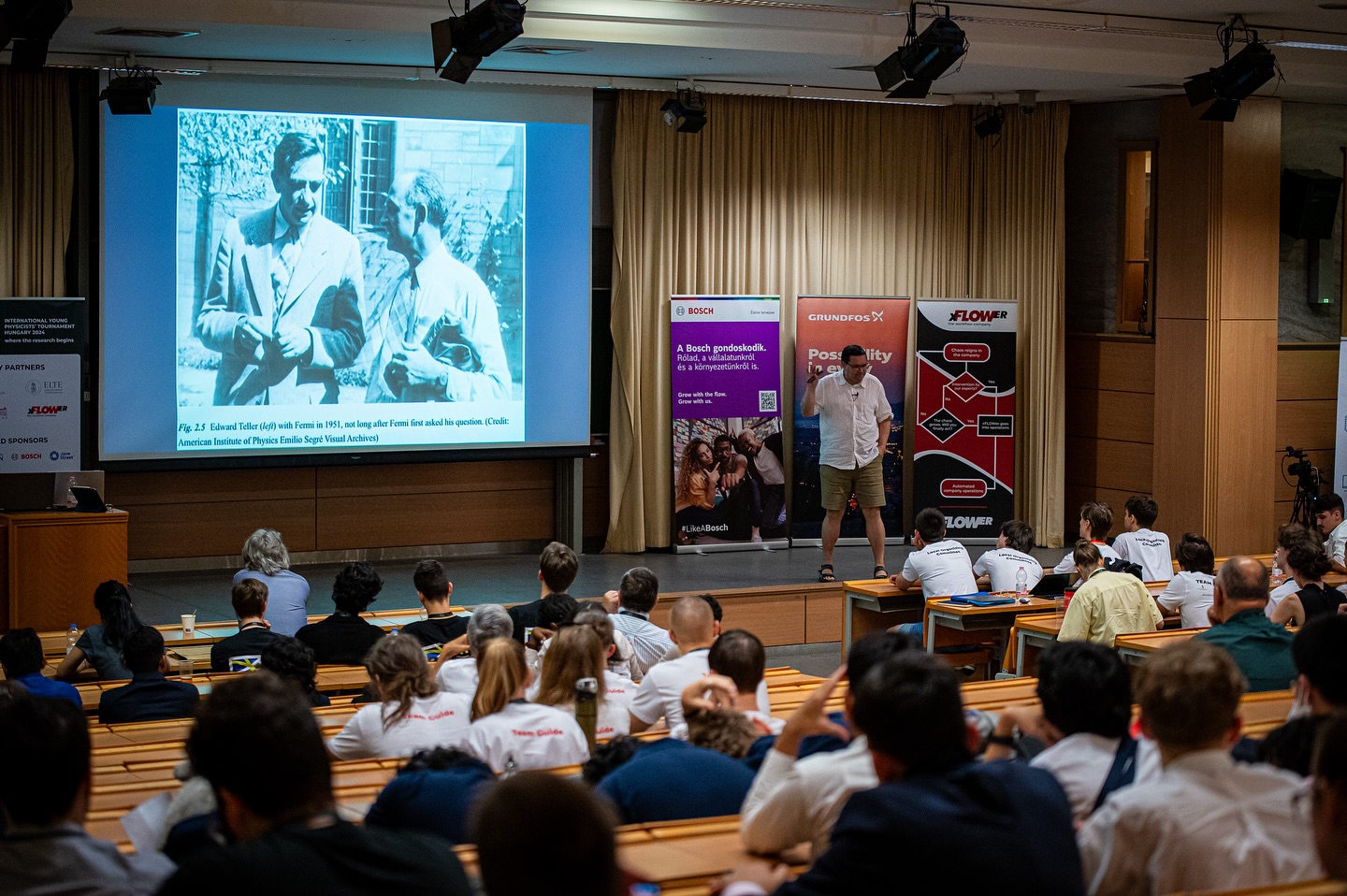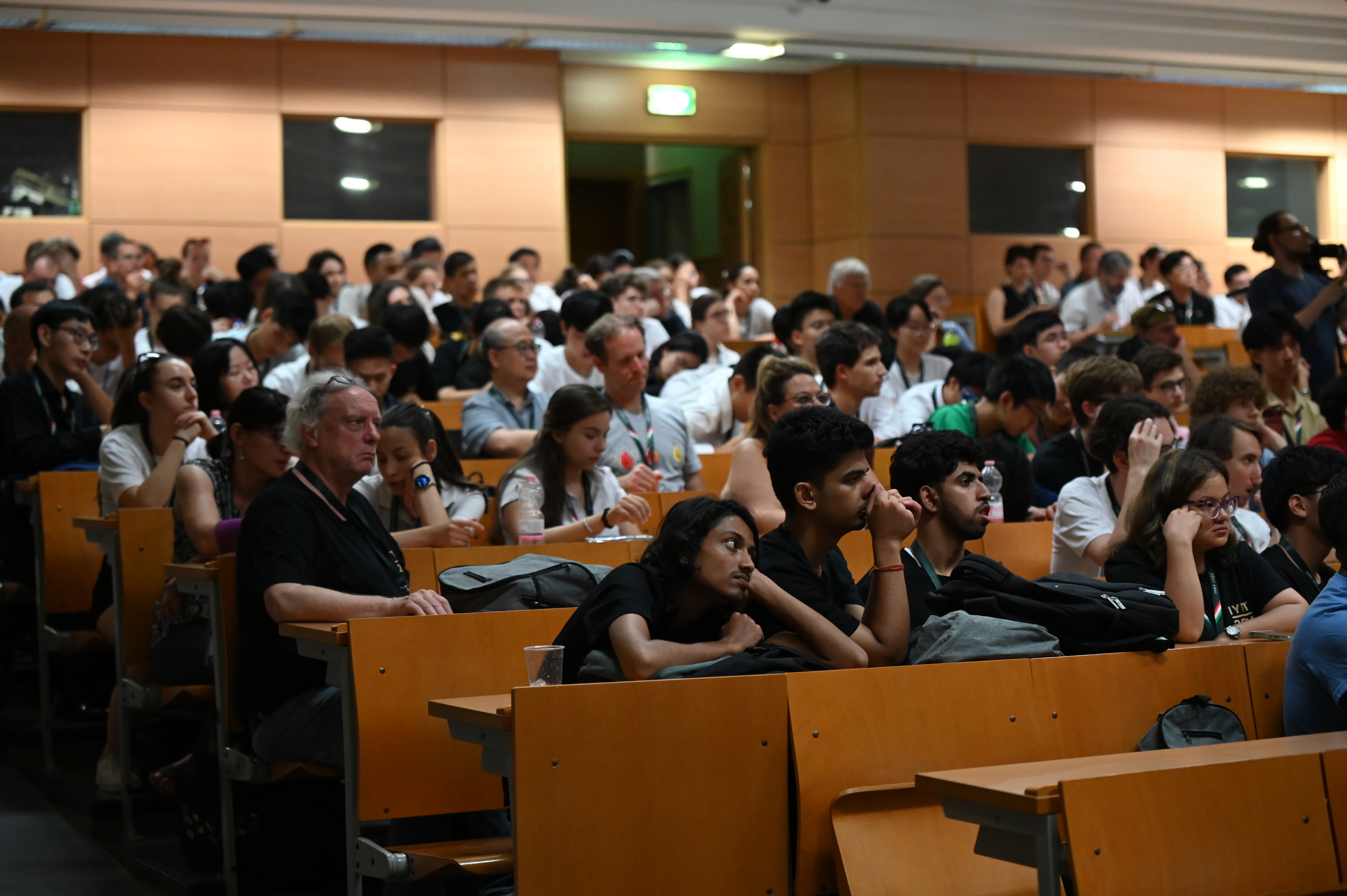Big and small geniuses meet at ELTE

The Science Talk event on 12 July was the culmination of months of work by physics researchers and students at ELTE TUT to prepare the IYPT 2024 programme. And this is not only about the organisation of the World High School Physics Research Competition in Budapest this year, but also about the professional preparation of the Hungarian team, which is traditionally carried out by ELTE - not without success, as the Hungarian participants won gold medal in 2017, silver medals in 2021, 2022 and 2023, and bronze medals in 2018 and 2019.
Despite the intense heat and the back-to-back rounds, the IYPT 2024's flagship event on Friday afternoon, Science Talk, held at ELTE's Lágymányos campus, was a full house event, with two distinguished physicists, Nobel Prize-winner Ferenc Krausz and Széchenyi Prize-winner László Kiss, giving exciting talks to the young people. Many languages were mixed in the conference room of ELTE's Lágymányos campus, but the excitement was universal. The most colourful figure in the audience was undoubtedly one of the team's mascots, a real garden gnome.
After a short welcome speech by Imre Kacskovics, Dean of the Faculty of Fine Arts, Ferenc Krausz, winner of the Nobel Prize in Physics in 2023, congratulated the young people and their teachers for reaching the finals of the world competition. He began his presentation by recalling the early years of his career and the teachers (including two Hungarians, György Marx from ELTE and Károly Simonyi from Budapest University of Technology and Economics ) who shaped his career.
In his inspiring lecture, he also explained why he believes research is worthwhile. A researcher can be motivated by the need to know the world and the excitement of discovery, but for him it is also particularly important that what he discovers has a concrete social impact. He then went on to talk in detail, in a way that is understandable to young people in high school, about the complex physical processes behind his research, and then about the work of the Molecular Fingerprinting Research Centre, which aims to use the results for diagnostics. As he indicated, their new campus will open soon, next to the ELTE and BME buildings in Lágymányos.

László Kiss, Director General of the HUN-REN Centre for Astronomy and Earth Sciences, gave a very different talk on the very exciting topic of the search for extraterrestrial life and the Fermi Paradox. Anyone who has heard the Széchenyi Prize-winning academician speak knows that his lectures are always highly entertaining, so there was no shortage of puns and banter with the audience, which managed to get the young people going again, as they were tired by late Friday afternoon, .
The academic recounted the legend of the birth of the Fermi paradox, according to which the Italian physicist was having lunch with colleagues, including Ede Teller, when he asked the famous question: if the estimated probability of extraterrestrial civilisations is high, where are they and why have we not yet found evidence of their existence? Since then, many theories have been put forward to answer this question, and László Kiss presented some of them, as well as his own ideas on the subject. He went on to share interesting information about the solar system and exoplanets.
As he said, researchers are always pushing the current frontiers of science, and not knowing something can inspire us to keep searching, to try to find what is still unknown.

The students took with them a number of reflections from the programme, which could give them new energy for the final competition, the final rounds of the competition, or even inspire their academic careers.
Photo by Attila Csomos


